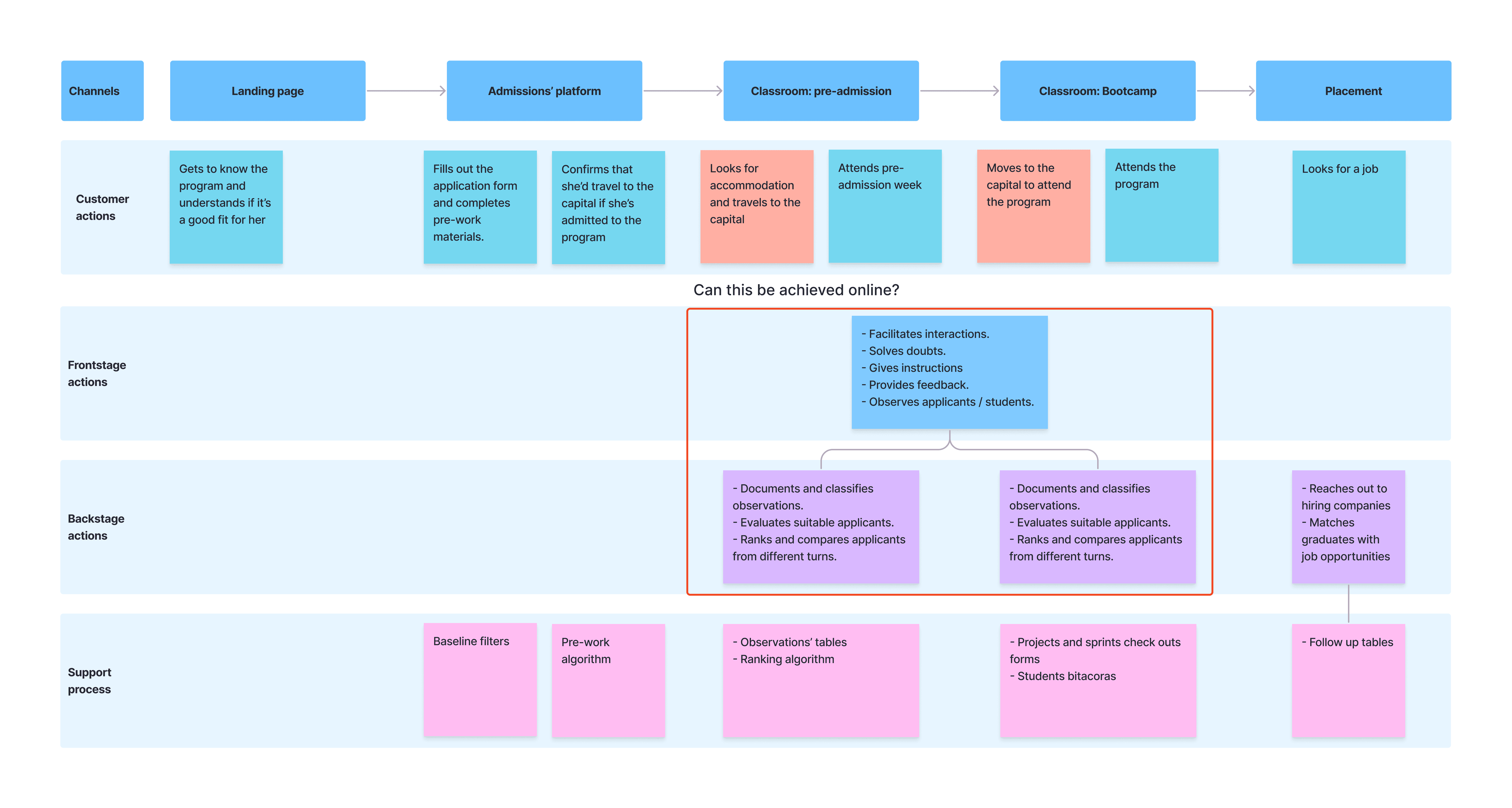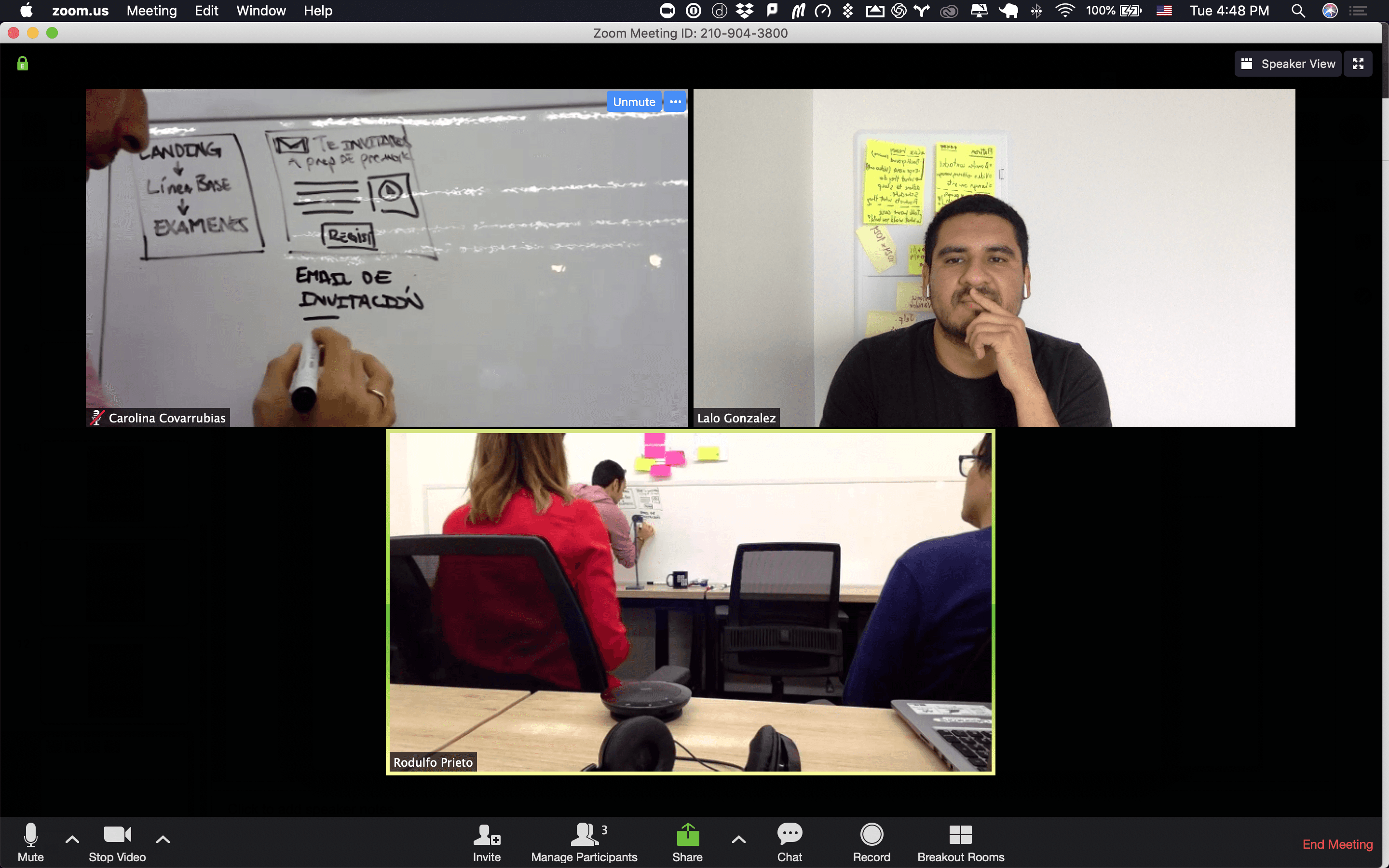service designer
Remote learning experience in Latam
Role:
- Lead Designer
Team
- Bootcamp Product Manager - Admissions Manager - Chief Product Officer
Duration:
10 months
Industry:
Education
0.0 Background
Laboratoria is a social education organization started in 2014 that trains underprivileged young women as Web Developers or UX Designers.
In 2019, after 4 years running in-person local bootcamps in Peru, Chile, Mexico and Brazil, the team realized that Laboratoria’s impact was limited not only to a limited number of spots per cohort but also to the local campuses in the capitals of those countries, meaning that students who lived in cities outside from those capitals couldn't attend the program. With that in mind we asked ourselves
how might we create remote learning experiences that are as good as or better than our current in person experiences that would allowed us to broaden our impact?
TL:DR
Laboratoria tested its first version of remote learning experiences in 2019 and later turned into a fully remote organization and have:
graduated more than 1000 students remotely
held admissions’ processes for more than 2000 applicants
accepted students from 3 new countries
1.0 Understanding
In order to immerse into the problem we conducted the following:
Analysis of historical data from past cohorts:
are numbers backing up the observations?
In-depth interviews with current and former students from outside of the capitals:
how was the process they follow in order to apply knowing that they needed to move out from their home cities?
In-depth interviews with current and former students:
how is their learning experience?
Concept testing:
how are their reactions towards a remote learning experience?
Subject matter experts interviews with internal and external coaches and team members
what can be the barriers to move to a remote learning experience?
what are the best practices regarding remote learning classrooms?
2.0 First findings
In the typical student journey through Laboratoria there’s a part that’s done online and the most important part is done in-person.
Applicants and students from outside the capital have to travel to the capital even if they have not been admitted to the program to attend the pre-admission week, generating them a financial burden given the population they come from.

What interventions can we make to move us one step towards our goal of having some kind of remote learning experiences?
Also, from the interviews we identified that:
Students valued the sorority that they lived in the in-person format and were dubious if that could be achieved in a remote setting.
They valued the in-person experience, but hated to commute between 2-5 hours a day to Laboratoria’s facilities.
The team was worried about the resources available for students at their houses in order to successfully attend the program and about the tools available to have the same workflow they had in regular in-person classes, like breakout groups.
3.0 Experiments
We planned and conducted two experiments.
Experiment 1 to validate and learn if students can work together in a short project while being in different cities.
Experiment 2 to validate if the team can assess the same skills to applicants working remotely and if they can achieve the same learning goals in a one week pre-admission project.

4.0 Results
We identified what were the key elements needed in a remote experience for Laboratoria:
Closeness to other students and coaches, having time to chit chat and better know each other
Maintain Laboratoria’s culture of freedom and responsibility
Sorority and the opportunity to support each other throughout a project
Ability for the coaching team to observe students perform during projects
We also tested and identified the different tools that we needed to use in order to enhance this remote experience: Zoom’s breakout rooms was the definitely feature we needed.
